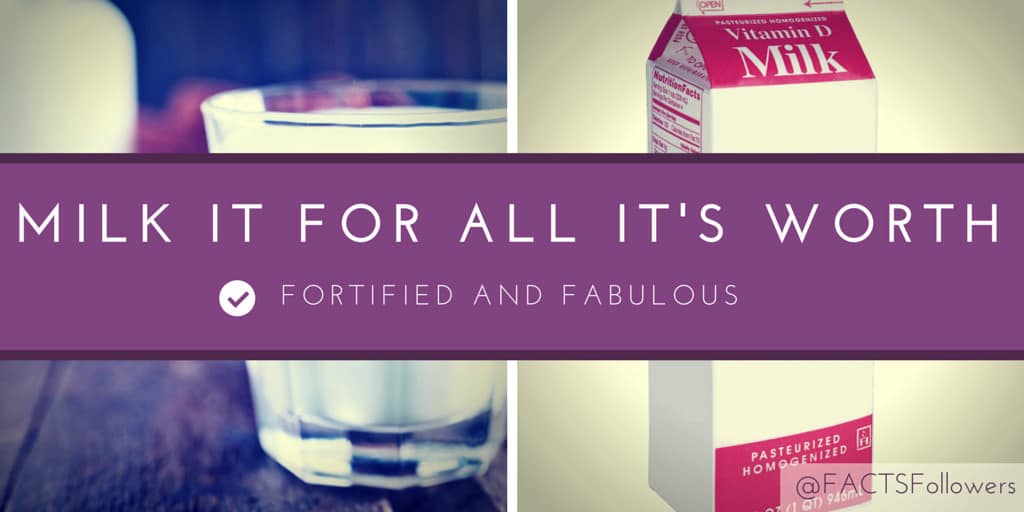 With some of the recent controversy we are seeing about cheese, we are going to take this opportunity to “milk” the benefits of packaged dairy products. As our latest infographic illustrates, you can’t always judge a food by its package. Dairy products are no different.
With some of the recent controversy we are seeing about cheese, we are going to take this opportunity to “milk” the benefits of packaged dairy products. As our latest infographic illustrates, you can’t always judge a food by its package. Dairy products are no different.
ASN’s 2014 Statement “Processed Foods: Contributions to Nutrition” points out that processed foods significantly contribute to Americans meeting nutrient needs of critical nutrients, such as calcium and vitamin D. In fact, processed foods contribute 48% of calcium and 34% of vitamin D to the American diet. While there are many foods that contain calcium and vitamin D, dairy products are a prime food source for these important nutrients.
Even with these contributions, Americans are still missing the mark when it comes to calcium and vitamin D requirements. The IFIC Functional Foods Survey revealed that 68% of Americans say they are getting enough vitamin D to meet their needs. But, according to NHANES data, only 32% of Americans are meeting the daily recommended intake for vitamin D. That means less than half of those who think they’re getting enough vitamin D actually are. Americans’ vitamin “D-ficiency” is becoming pretty apparent.
So why should we care about calcium and vitamin D? The 2015 Dietary Guidelines Advisory Committee report says the shortfall of these nutrients in the American diet is a public health concern, because “their underconsumption has been linked in the scientific literature to adverse health outcomes.” Calcium and vitamin D are associated with serious benefits for your body, including increased bone and muscle health.
In addition to vitamin D and calcium, processed dairy products are also a source of protein in the diet. That protein boost contributes to vital health benefits such as weight loss and weight management, maintenance of lean muscle mass, and improved immune health. According to the 2014 IFIC Foundation Food & Health Survey, 58% of Americans are considering protein when purchasing foods and beverages, 70% of whom are looking for protein specifically in milk and dairy sources.
If you are looking for ways to get in more of these important nutrients, here are three tips on how to get more dairy in your diet with packaged foods:

Go with Yogurt.
Whether it’s regular or Greek, yogurt is full of healthful nutrients like protein. It also comes with a special sidekick component called probiotics. Probiotics, naturally found in yogurt, are most commonly known for their digestive and immune health benefits. Additionally, diets rich in probiotics can help reduce risk for certain types of cancers and colorectal diseases.

Get Cheesy.
There are tons of different types of cheese to choose from, and all of them have beneficial nutrients. Don’t forget to consider portion size in the context of your overall diet and calorie intake, but in terms of meeting needs for vitamin D, calcium, and protein, don’t be afraid to ask for “more cheese, please!”

Milk It for All It’s Worth.
The dairy godmother of them all, milk, can be part of a bowl of cereal or baked into an elaborate dessert. Either way, the health benefits come through. Milk is often fortified with vitamin D to increase your calcium absorption. Consider that a bonus! Make sure to choose low- or non-fat milk options to stick with the Dietary Guidelines for Americans. When it comes to dairy, it’s on MyPlate, so it should be on your plate too.
